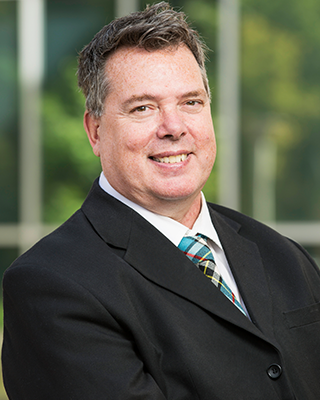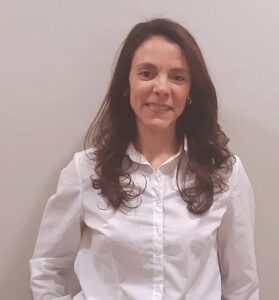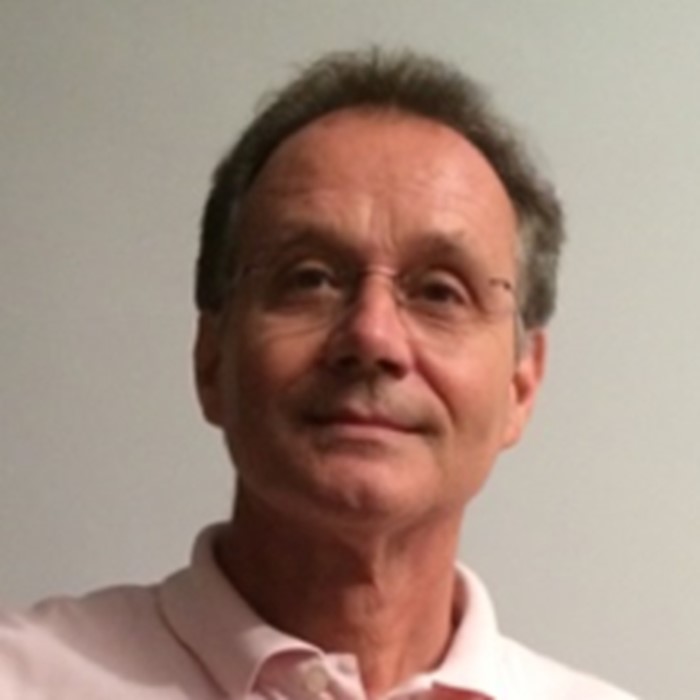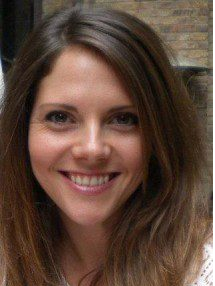
Dear colleagues,
The importance of regular physical activity for the wellbeing and healthy growth and development of humans has long been established, and increasing physical activity has long been a target of policies and interventions worldwide. But for individuals to increase time spent doing physical activity, it requires a clear trade-off: this additional time being physically active has to come from time spent doing other activities within the day, sedentary behaviour, or sleep (Dumuid, Olds & Sawyer, 2021, Lancet). Researchers have increasingly included sedentary behaviour in analysis of physical activity, many times attempting to disentangle the potential individual effects of each on a given outcome. However, sleep – an essential component of health and the only other possible movement behaviour – is often overlooked (Dumuid, Olds & Sawyer, 2021, Lancet).
In the last few years, there has been a rapidly growing recognition of 1) this paradigm of each day containing a finite 24h within which humans can be doing one of 3 movement behaviours – i.e., physical activity, sedentary behaviour or sleep –, where a change in one can only be done at the expense of change in one or both the other movement behaviours, and that 2) changing sedentary behaviour or sleep could potentially have similar benefits to changing physical activity (Dumuid, Olds & Sawyer, 2021, Lancet). This has led to some big shifts within the research and policy landscapes:
- from the application of novel data analysis methods (e.g., isotemporal substitution) or refocusing intervention goals on achieving a healthier balance between the 3 behaviours rather than just achieving a physical activity guideline threshold (Dumuid, Olds & Sawyer, 2021, Lancet), which can be difficult for some individuals (e.g., people with disabilities and cancer patients);
- to updates in guidelines across the world, with many now mentioning how individuals should limit their sedentary behaviours and how much time they should spend sleeping for optimising their health and wellbeing (e.g., World Health Organisation’s (WHO) under 5’s guidelines).
It was with this in mind that we chose “The Human Biology of Movement Behaviours” as the theme for the SSHB’s annual conference. Within this, we are inviting submissions of research focusing on:
- The methods for the measurement or analysis of physical activity, sedentary behaviour, and/or sleep;
- Physical activity, sedentary behaviour, and sleep prevalence and trends;
- The factors that influence physical activity, sedentary behaviour, and/or sleep;
- The influence of physical activity, sedentary behaviour, and/or sleep on human health, growth and development.
The conference aims to be an interdisciplinary meeting with a maximum of 200 participants, and will include a mixture of invited lectures and presentations (oral and poster) from submitted abstracts. Wanting to actively promote and support academics from low-and middle-income countries and in early career stages, the Society will grant one New Investigator Award, one Low- and Middle-Income Investigator Award, and one Best Student Poster Award – see the abstract submission form for further details and eligibility criteria.
In addition, this will be a parent/carer-friendly conference: we are very aware that sometimes caring demands/commitments can be a barrier for researchers to submit and present their work at scientific conferences (some of us from first hand experience!). If you would like to submit your work to this conference but are have perhaps decided not to because of , for example, having to take care of a young child or because you are still breastfeeding your baby – the organising committee are happy to help by looking after your child/baby during your presentation slot (and some other agreed presentations of special interest to you, as possible with our human resources), and you are very welcome to bring your baby along and breastfeed within the venue while the conference is occurring.
We look forward to welcoming you in Porto in 2024!
The organising committee:
Dr Silvia Costa, Dr Eduardo Guimarães, Dr Sara Pereira, Dr Carla Santos
Abstract submission now closed.
Registration now closed.
For location and accommodation information – click here
For information about the conference dinner – click here
For the conference programme – click here
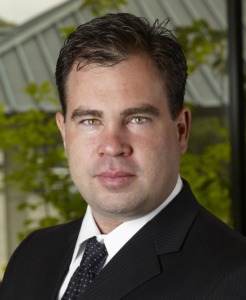 Prof. Katzmarzyk is Professor and Associate Executive Director for Population and Public Health Sciences at the Pennington Biomedical Research Center where he holds the Marie Edana Corcoran Endowed Chair in Pediatric Obesity and Diabetes. Prof. Katzmarzyk is an internationally recognized leader in the field of physical activity and obesity, with a special emphasis on pediatrics and ethnic health disparities. He has over two decades of experience in conducting large clinical and population-based studies in children and adults. Prof. Katzmarzyk has a special interest in global health and has a record of building research capacity in physical activity and obesity research in developing countries.
Prof. Katzmarzyk is Professor and Associate Executive Director for Population and Public Health Sciences at the Pennington Biomedical Research Center where he holds the Marie Edana Corcoran Endowed Chair in Pediatric Obesity and Diabetes. Prof. Katzmarzyk is an internationally recognized leader in the field of physical activity and obesity, with a special emphasis on pediatrics and ethnic health disparities. He has over two decades of experience in conducting large clinical and population-based studies in children and adults. Prof. Katzmarzyk has a special interest in global health and has a record of building research capacity in physical activity and obesity research in developing countries.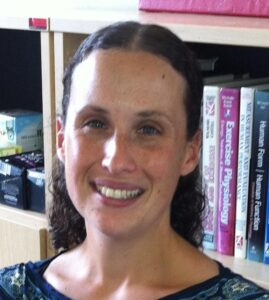 Prof. Lauren Sherar is a Professor of Physical Activity and Public Health in the School of Sport, Exercise and Health Sciences at Loughborough University in the United Kingdom (UK). She has expertise in accelerometer assessment of movement behaviours, data harmonisation, interventions and measuring growth and development of children.
Prof. Lauren Sherar is a Professor of Physical Activity and Public Health in the School of Sport, Exercise and Health Sciences at Loughborough University in the United Kingdom (UK). She has expertise in accelerometer assessment of movement behaviours, data harmonisation, interventions and measuring growth and development of children.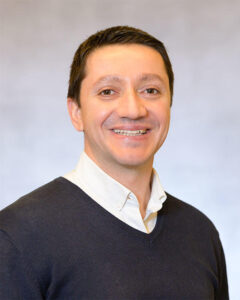 Dr Pedro Saint-Maurice has recently joined the Champalimaud Centre for the Unknown (Champalimaud Foundation, Portugal) as an investigator, after several years as a Research Fellow at the National Cancer Institute’s (NCI) Division of Cancer Epidemiology & Genetics. He received a Ph.D. in Kinesiology from Iowa State University, Ames, in 2013, and his dissertation work examined the potential of accelerometry for calibrating physical activity questionnaires. He has led several studies to understand the measurement properties of both accelerometers and physical activity questionnaires, and was also involved in the NCI-funded project, The Family Life, Activity, Sun, Health, and Eating (FLASHE) Study.
Dr Pedro Saint-Maurice has recently joined the Champalimaud Centre for the Unknown (Champalimaud Foundation, Portugal) as an investigator, after several years as a Research Fellow at the National Cancer Institute’s (NCI) Division of Cancer Epidemiology & Genetics. He received a Ph.D. in Kinesiology from Iowa State University, Ames, in 2013, and his dissertation work examined the potential of accelerometry for calibrating physical activity questionnaires. He has led several studies to understand the measurement properties of both accelerometers and physical activity questionnaires, and was also involved in the NCI-funded project, The Family Life, Activity, Sun, Health, and Eating (FLASHE) Study.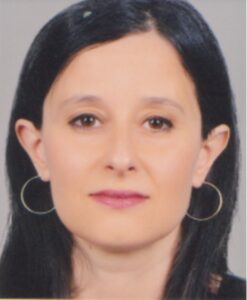 Dr Asmaa El Hamdouchi holds a PhD in Nutrition from Ibn Tofail University (Morocco) and currently works at Morroco’s National Centre for Nuclear Energy. Her research interests span from child malnutrition to the measurement and variability of body composition and energy expenditure across the human life course, and the measurement and surveillance of children’s physical activity and sedentary behaviours across the globe, being involved in several international collaborations and initiatives such as the Global Observatory for Physical Activity (GoPA!) and the International Surveillance Study of 24h Movement Behaviours in the Early Years (SUNRISE-study).
Dr Asmaa El Hamdouchi holds a PhD in Nutrition from Ibn Tofail University (Morocco) and currently works at Morroco’s National Centre for Nuclear Energy. Her research interests span from child malnutrition to the measurement and variability of body composition and energy expenditure across the human life course, and the measurement and surveillance of children’s physical activity and sedentary behaviours across the globe, being involved in several international collaborations and initiatives such as the Global Observatory for Physical Activity (GoPA!) and the International Surveillance Study of 24h Movement Behaviours in the Early Years (SUNRISE-study).